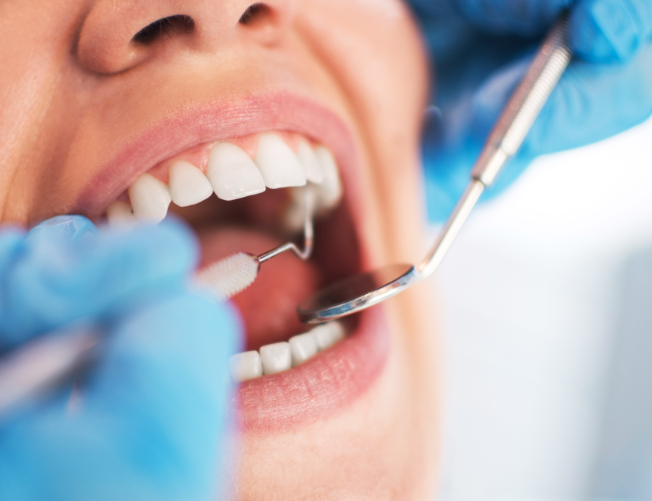Maintaining long-term dental health requires practicing good oral hygiene before going to bed.
Does brushing your teeth right before bed make a difference? A lifestyle habit that many have found difficult to maintain. In the city, everyone else is too busy indulging in fine dining or gorging on street food, and in the midst of this culinary indulgence, dental health suffers.
Not that dental care is completely disregarded; rather, a sizable segment of the populace frequently forgets to perform the important nighttime brushing routine. Maintaining long-term dental health requires practicing good oral hygiene before going to bed.
Also read-Introduction: Exploring The Health Benefits Of Hibiscus Plants

Experts on dental health
According to experts, about ten years ago, seventy percent of Indians acknowledged that they were too lazy to brush their teeth at night. It is surprising to learn that only 45% of Indians presently brush their teeth twice a day; this statistic hasn’t increased much. Nine out of ten Indians suffer from dental cavities, according to Dr. Vamsi Krishna Reddy, General Secretary of the Indian Association of Public Health Dentistry. This statistic highlights how little emphasis Indians place on oral health care in their day-to-day lives. Notably, in urban India, the lapse in nighttime brushing seems more attributed to laziness and ignorance than a lack of education.

Frequently asked questions
What are the repercussions of neglecting nighttime brushing?
Tooth decay is one of the many oral health issues that can result from this neglect. One of the many oral health problems that can arise from not brushing your teeth at night is tooth decay. Dr. Vamsi Krishna Reddy told India Today. In that food, particles and bacteria that build up on teeth throughout the day produce acids that erode tooth enamel and cause cavities and decay. Furthermore, poor oral hygiene at night can cause bad breath because sleeping reduces saliva production, which fosters the growth of bacteria.

Dental Health
Gum disease
Another consequence is plaque accumulation in gum disease. Plaque accumulation along the gum line can lead to infection and inflammation, which can result in gingivitis or more serious periodontal diseases, according to Dr. Reddy. The consequences of not brushing at night go beyond oral health and affect long-term physical health.
Is it true that flossing creates gaps between teeth and weakens them?
“When done correctly, flossing does not create gaps between teeth or weaken them. Instead, it helps maintain oral health and contributes to stronger teeth by preventing gum disease and tooth decay. Proper flossing is an important part of maintaining good oral hygiene and can contribute to stronger, healthier teeth,” Dr. Jaradi said.

Dental Health
She, however, emphasizes the importance of flossing correctly to avoid causing damage or irritation. Improper flossing techniques, such as using too much force or snapping the floss into your gums, can potentially cause gum irritation and recession. This might create the appearance of gaps between teeth, but it’s the result of improper technique rather than flossing itself.
How do I floss properly?
“Flossing is an important part of maintaining good oral hygiene. It helps remove plaque and food particles from between the teeth and the gumline, where the toothbrush does not reach. Choose the type of floss that suits you and seek guidance from your dentist about the technique. Take your time to floss each tooth, including the back molars. After flossing, rinse your mouth with mouthwash to remove loosened particles. Floss at least once a day; consistency is the key to good oral health,” she said.
Also read-Migraines : A Patient’s Guide To Migraines And Its Symptoms
images source: Google
Disclaimer: The opinions and suggestions expressed in this article are solely those of the individual analysts. These are not the opinions of HNN. For more, please consult with your doctor




































